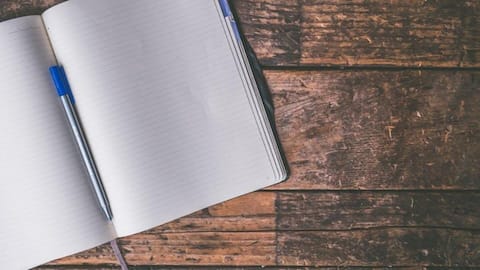Exploring different forms of journaling for mental well-being
What's the story
In our busy lives, journaling has become essential for mental health and self-care. It's more than just writing; it's a path to self-awareness and emotional well-being. By exploring various journaling methods we can manage stress and foster resilience. Let's delve into five forms of journaling where each method offers unique benefits, helping us reconnect with ourselves and embrace a more balanced life.
Introspection
Reflective journaling
Reflective journaling involves writing about your thoughts, feelings, and experiences. It encourages introspection, helping you gain insights into your emotions and behaviors. This type of journaling is particularly useful for enhancing self-awareness, emotional regulation, and problem-solving skills. Set aside a regular time each day reflecting on your daily experiences and jot down your thoughts.
Appreciation
Gratitude journaling
Gratitude journaling involves noting things you're thankful for, no matter how small—like being alive or waking up to a new day. It fosters a positive mindset by recognizing life's good aspects, enhancing mood, shifting perspectives, and reducing stress. Make it a daily practice by writing down three things you're grateful for each day to cultivate a habit of appreciation and positivity.
Self-expression
Creative journaling
Creative journaling involves combining artistic expression with writing, such as art journaling, collage making, doodling, poetry, prose, or visual journaling. This practice stimulates creativity, enhances self-expression, and provides an outlet for artistic exploration. By experimenting with different mediums, you can discover what resonates best with you, allowing for a more personalized and fulfilling journaling experience.
Freeform
Morning pages
It is a form of freeform journaling which involves writing several pages of morning thoughts daily. Its aim is to clear mental clutter and spark creativity early in the day. By committing to this practice, you establish a structured yet adaptable approach to organizing and exploring your thoughts, promoting creativity and clarity right from the start.
Sensory awareness
Mindfulness journaling
Mindfulness journaling involves integrating reflective writing with mindfulness techniques like breath and sensory awareness, and observing thoughts. This practice promotes relaxation, reduces anxiety, and enhances awareness and acceptance. By documenting immediate surroundings and emotional experiences in detail, it heightens awareness of sensory perceptions. Write about the present moment—what you see, feel, touch, or smell—to cultivate mindfulness and deepen your connection with the present.
